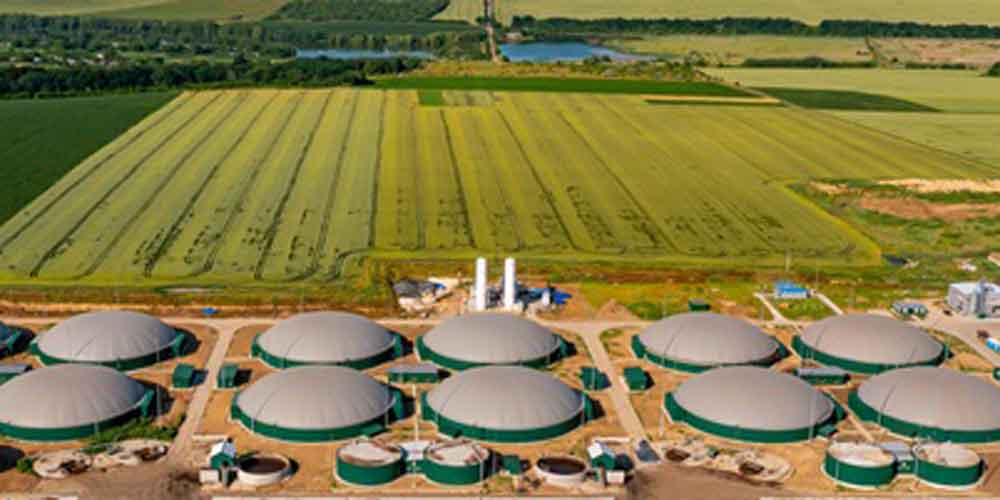The University of Illinois Urbana-Champaign has secured another round of funding from the U.S. Department of Energy (DOE) to lead the second phase of its Bioenergy Research Center. The center is one of four DOE-funded research centers focused on innovation in biofuels, bioproducts, and clean energy for the country.
The DOE has announced a five-year extension of funding for the Center for Advanced Bioenergy and Bioproducts Innovation (CABBI), totaling $237.9 million for the period of 2017 to 2027. CABBI is a collaboration between the university’s Institute for Sustainability, Energy, and Environment (iSEE), the Carl R. Woese Institute for Genomic Biology (IGB), 11 academic departments, including five in the College of Agricultural, Consumer and Environmental Sciences (ACES), and 20 partner institutions across the nation.
The funding extension will continue to support the scientific work conducted at the Bioenergy Research Centers, providing sustainable resources as part of the clean energy future. Andrew Leakey, Professor and Head of the Department of Plant Biology at Illinois, will continue as Director of CABBI.
Emily Heaton, a Professor of Regenerative Agriculture in the Department of Crop Sciences at ACES, will continue to lead the Feedstock Production theme at CABBI, focusing on the “plants as factories” paradigm to grow biofuels and bioproducts directly in crops.
The funding will advance the capacity to protect and enhance the natural resource base by using resilient plants for power, fuel, and products, translating into secure domestic energy with climate benefits.
One idea that can be borrowed from this is the importance of collaboration in research and development of sustainable energy solutions.
The Bioenergy Research Center at the University of Illinois Urbana-Champaign is a collaboration between the university’s Institute for Sustainability, Energy, and Environment, the Carl R. Woese Institute for Genomic Biology, 11 academic departments, and 20 partner institutions across the nation. This collaboration allows for a diverse team of scientists to work together towards a common goal of developing sustainable, cost-effective biofuels and bioproducts.
This approach of collaboration in research and development can be beneficial to other countries as well.
For example, in Europe, the Horizon 2020 program funds collaborative research projects in areas such as energy, environment, and climate action. This program aims to promote international cooperation in research and innovation, creating partnerships across different sectors, disciplines, and countries to address societal challenges.
Furthermore, collaboration between countries can also help in the development and adoption of sustainable energy solutions globally. The International Renewable Energy Agency (IRENA) is an intergovernmental organization that promotes the widespread adoption and sustainable use of renewable energy worldwide. IRENA facilitates collaboration between countries to share knowledge, best practices, and resources to accelerate the adoption of renewable energy.
In conclusion, collaboration in research and development is crucial in the development of sustainable energy solutions. By working together, researchers and scientists can share knowledge, expertise, and resources to achieve common goals. This approach can be adopted by other countries to promote the development and adoption of sustainable energy solutions and accelerate progress towards a clean energy future.
